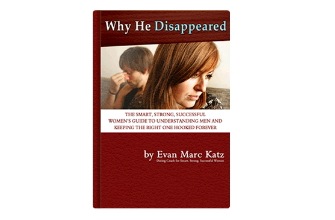Why Are Only-Child Women (And Men) So Self-Centered?

- Studies About the Differences Between Men and Women, Understanding Men
Hi Evan,
Before I got married 10 years ago (now recently divorced) I had and just recently have had ‘coffee dates’ of at least a dozen to two dozen (no exaggeration) with only-child women. The same personality trait in all of them can be found when I meet them: They rarely ever ask any questions, show little interest or just passing curiosity about me, even just to fake it. It’s astounding. Additionally, if I don’t keep up the conversation by being interested with questions about them it becomes dead silence. They don’t ever engage or banter. Not a sentence comes out that requires a question mark. I almost never see this trait with anyone else. Just only-child women.
I actually have seen it in non-dating situations (groups, friends, etc.) of lack of interest or inquisitiveness about almost anything in social situations. Before I got married I had a few hundred coffee dates over many years. My experience is not weak. I can recount all of them because they are glaring in my mind and consistent. Too many for it to be a coincidence.
Is there any anecdotal evidence to suggest a strong correlation of only child and almost a self-centeredness or just plain lack of social interest in other people? Any thought or experience you had with this?
Thanks, Steven
Dear Steven,
I usually don’t get to talk like this, so I’m going to relish the moment:
You’re wrong.
We stereotype. We generalize. We have a sliver of evidence, and we blow it up to become the entire story. And, as a result, we fail to judge people on an individual basis.
I can see why you feel the way you feel, but, if anything, you’re just referring to a well-worn stereotype and finding evidence to support what you already believe.
Alas, my friend, science has spoken, and only children are no less adjusted or socialized than any other children. The only thing that’s different is that their test scores are a little bit higher, probably because they get all of the attention of both parents.
This New York Times article was particularly illuminating on this topic.
So if you’re wrong, then why am I running your letter? Well, because it illustrates a perfect example of what people tend to do when evaluating romantic partners.
We stereotype. We generalize. We have a sliver of evidence, and we blow it up to become the entire story. And, as a result, we fail to judge people on an individual basis.
What kind of stereotypes are we talking about? Well, probably ones not that different than “only children are self-centered”. Destructive things like:
Men who have never been married by age 40 are damaged.
Women who are lawyers are difficult as girlfriends.
Psychologists are all crazy.
If he’s divorced, it means he doesn’t value commitment.
Might you be cautious of lifelong bachelors, separated people, and intense lawyers and shrinks? Sure. But you might be similarly cautious of anyone who is:
Successful (too ambitious, workaholic, puts his drive over his wife)
Attractive (too vain, too shallow, too narcissistic)
Intelligent (too arrogant, opinionated, difficult, moody)
In other words, EVERYONE has issues — and we can’t spend our lives avoiding all only children, or all divorced men, or all psychologists.
We need to take each person at face value and judge on merit, rather than prejudice and stereotype.
Put another way, what would someone say about you, if they were being highly critical and discriminating?
If my wife bought into that — and tried to protect herself from the admittedly slutty, 35-year-old “dating expert” who’d passed up over 300 women and never had a relationship for longer than 8 months — well, then, it would have been both of our losses.
I’ve said it recently, and I’ll say it again: don’t judge a book by it’s cover. Read the whole thing, and if you don’t like it, then don’t read the sequel. Anything less than that, and you’re discriminating without knowing the full picture.
Put another way, what would someone say about you, if they were being highly critical and discriminating? Takes Prozac? Makes no money? Single cat lady? Too independent?
How unfair if someone didn’t see past that label to the true you inside…










Comments